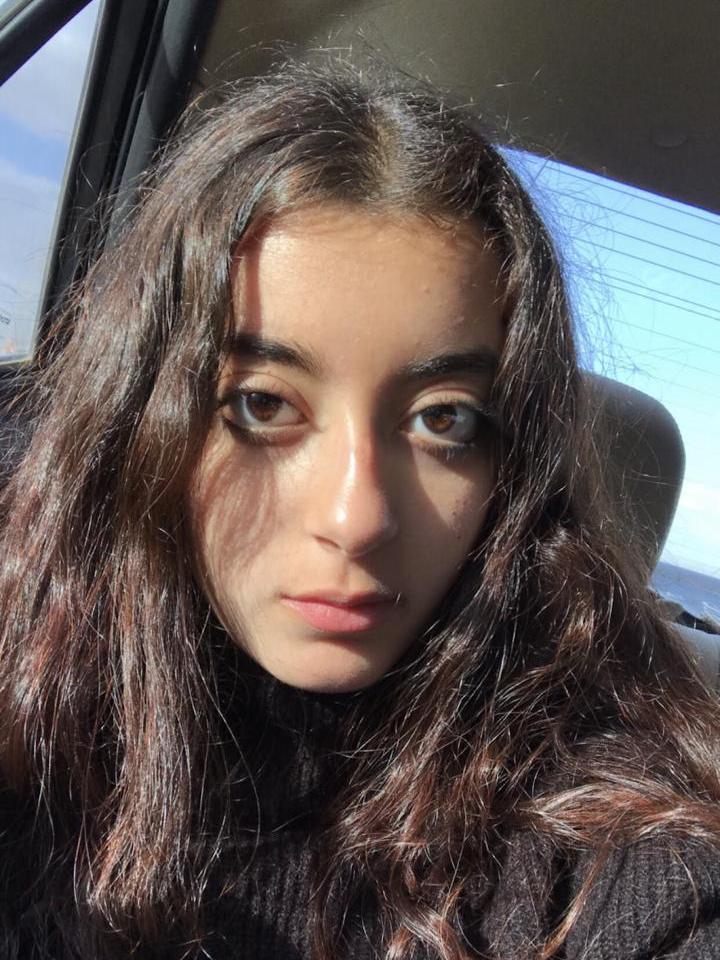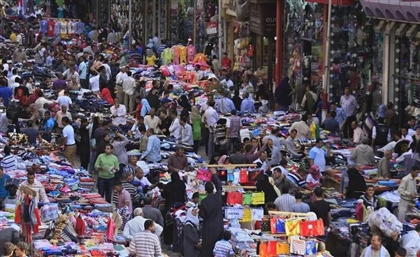The Search for Safe Spaces Within MENA’s Underground Parties
With independent organisers continually carving out new party spaces, the crowd’s safety becomes integral to the sustainability of an emerging musical wave.
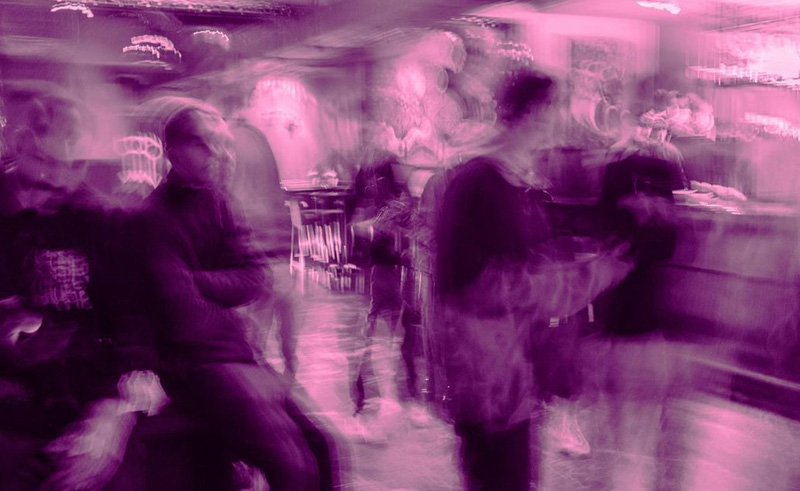
With countless music-fuelled subcultures emerging across the region, collectives and communities are beginning to establish themselves, bringing something fresh to each city’s growing music scene. And with independent organisers and artists carving out these party spaces, informally bringing together people to listen and experience, the safety of those spaces becomes integral to the sustainability of an emerging musical wave.
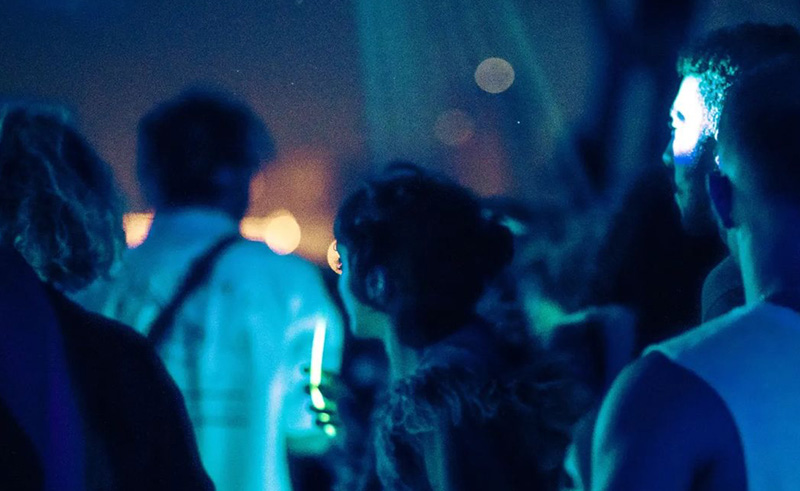 Post-party whispers, Twitter threads, questions and violent allegations have become almost a weekly routine, reshaping hangovers into a more dreaded experience, ripe with short-lived discourse, until the next party comes along, bringing with it another scandal. Over the past few years call-out culture, specifically in sexual violence cases, has been taking a new virtual form across the region, with ramifications and social ways forward still unclear, especially amidst nightlife settings.
Post-party whispers, Twitter threads, questions and violent allegations have become almost a weekly routine, reshaping hangovers into a more dreaded experience, ripe with short-lived discourse, until the next party comes along, bringing with it another scandal. Over the past few years call-out culture, specifically in sexual violence cases, has been taking a new virtual form across the region, with ramifications and social ways forward still unclear, especially amidst nightlife settings.
Historically, dance music and club culture brought with it a message of inclusivity - carving out a space for marginalised communities, a space where pleasure becomes resistance. And as musicians themselves become activists by virtue of stepping outside of mainstream genres, partygoers similarly embody the same spirit, especially within local conservative contexts where rave and club culture is seen as inherently immoral.
From shaabi to techno to trap, new voices find new spaces amidst the margins of society, and the urge to keep those music spaces alive could either mean a collective responsibility to keep them safe or a collective decision to silence critique. While mainstream concerts and parties are home to the same possibility of violence, the often-freeing lack of structure in underground parties can prove to be even more dangerous.
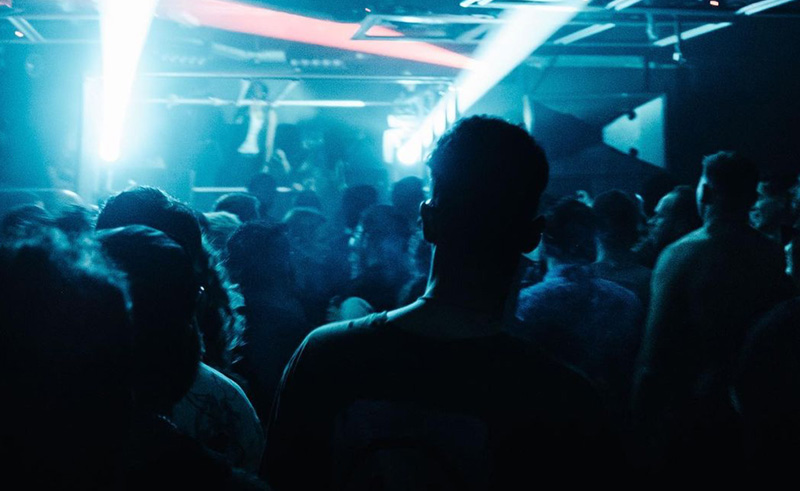 “It’s a vicious cycle of needing an inclusive space that respects everyone’s identities, while also mitigating external risk factors that could potentially put marginalised groups in danger,” Cairo-based social worker Amina Khalil tells SceneNoise. “By now within specific circles in Cairo we know which parties are safe and which aren’t, which artists attract which crowds, and honestly a lot of the responsibility should be placed on artists and the organisers booking them because they know their audience as well.”
“It’s a vicious cycle of needing an inclusive space that respects everyone’s identities, while also mitigating external risk factors that could potentially put marginalised groups in danger,” Cairo-based social worker Amina Khalil tells SceneNoise. “By now within specific circles in Cairo we know which parties are safe and which aren’t, which artists attract which crowds, and honestly a lot of the responsibility should be placed on artists and the organisers booking them because they know their audience as well.”
Cairo-based writer, producer, DJ and co-founder of audiovisual collective MOSHTRQ, Yaseen El Azzouni, spoke to us about how he navigates his role as a performer and organiser. “If there's at least one person in the audience who has come to see me perform and I willingly bring them into an unsafe environment, it’s my responsibility,” he says. “Any time you perform, you give that organiser, promoter or brand a stamp of approval of sorts; you indicate to people that you are ethically aligned with this organisation you’re performing for, and that association lives on longer than the duration of the event itself.”
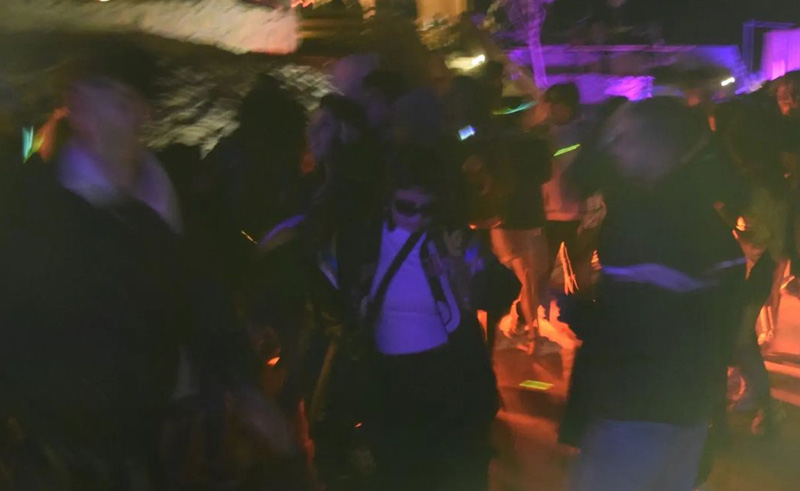 “On the organisational side of things, you don’t have the luxury to enjoy your own party,” El Azzouni explains. “It’s a job, and the awareness to solve issues as they arise is part of that job. When you’re wasted, careless, or willfully negligent towards what’s happening at your event, you hinder your ability to assess and deal with situations as they arise.”
“On the organisational side of things, you don’t have the luxury to enjoy your own party,” El Azzouni explains. “It’s a job, and the awareness to solve issues as they arise is part of that job. When you’re wasted, careless, or willfully negligent towards what’s happening at your event, you hinder your ability to assess and deal with situations as they arise.”
With different party series and collectives, there is a growing movement to enforce a new model for safety. “It definitely goes back to the 90s rave scene where the motto was ‘peace, love, unity and respect’,” Julian Lovett, co-founder of Secta - a Dubai-based underground collective - tells SceneNoise. “This is just an iteration of that where we call it a ‘safe space’.”
“We started having these conversations within our community, instead of just going to a party and not really caring about the people around you,” Elisa Arienti, co-founder of Secta, adds. “It’s really important to us and it came from our heart because we needed this personally as well.”
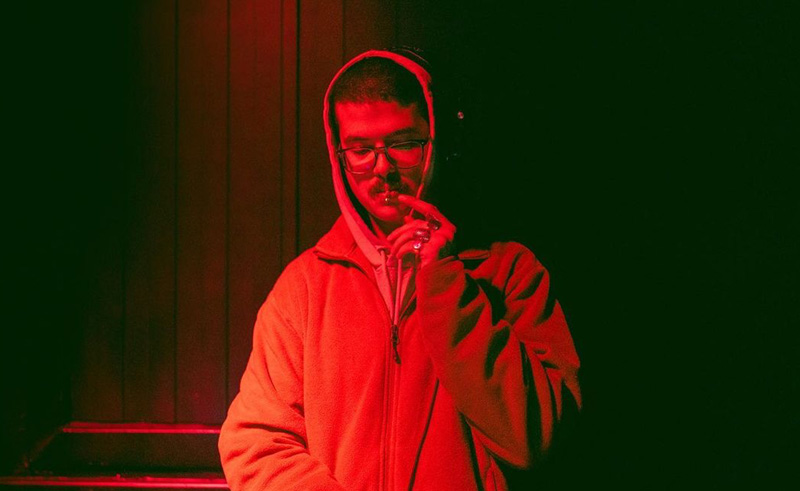 The collective grew during the COVID-19 pandemic, with the duo hosting house parties that grew in size as lockdown restrictions became more flexible. They began to use their platform as a space to advocate for their ever-changing guidelines. “As a community-based event, we feel like our crowd grew and learned along with us, they tend to read what we write and publish on club ethics for example,” Arienti explains. “And it keeps changing because we’re also learning on the ground.”
The collective grew during the COVID-19 pandemic, with the duo hosting house parties that grew in size as lockdown restrictions became more flexible. They began to use their platform as a space to advocate for their ever-changing guidelines. “As a community-based event, we feel like our crowd grew and learned along with us, they tend to read what we write and publish on club ethics for example,” Arienti explains. “And it keeps changing because we’re also learning on the ground.”
Secta’s events began including an identifiable and trained awareness team, roaming around the party venue to assist partygoers in cases of intoxication, harassment or conflict. Similarly in Cairo, the underground party series Lazuli began to include a designated team to monitor their parties. “I think just their presence with a clearly marked vest makes people feel safer, and they know there is someone they can reach out to in case of an emergency,” Mohamed Raouf, founder of Lazuli, tells SceneNoise. “Another really important factor is access to free water. As an organiser, it really costs me nothing to supply but it’s essential for everyone’s and the party’s safety.”
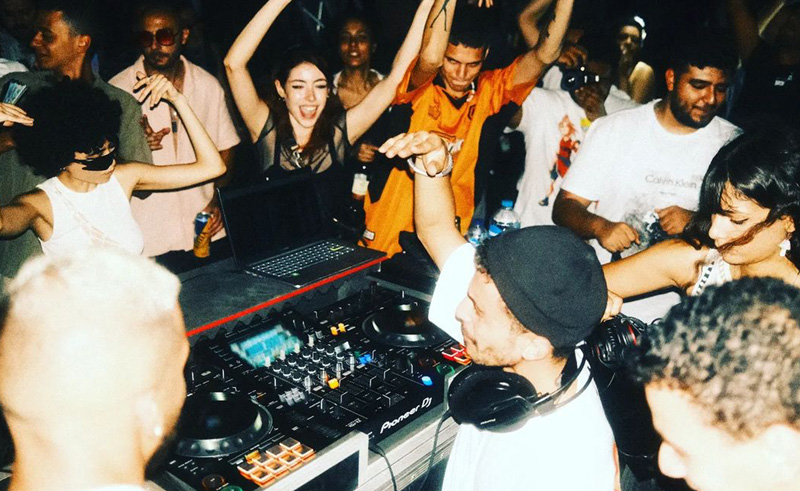 For vulnerable groups, a night meant for them to unwind can turn dangerous quickly. “Women are burdened with the risk of violence at parties, and they’re also burdened with the possibility of meeting known predators who are still allowed within settings that are likely to bring out their worst behaviour,” feminist advocate Ranya Oweida tells SceneNoise.
For vulnerable groups, a night meant for them to unwind can turn dangerous quickly. “Women are burdened with the risk of violence at parties, and they’re also burdened with the possibility of meeting known predators who are still allowed within settings that are likely to bring out their worst behaviour,” feminist advocate Ranya Oweida tells SceneNoise.
Club culture and clubbing regionally is relatively new, with room for artists, promoters and organisers to navigate new territories created by an emerging culture. DJ A7ba El Jely aka Donia Shohdy, founder of the Cairo-based underground party series Jellyzone, spoke to us about her decade-long experience as an artist and organiser of one of Cairo’s most inclusive parties.
“I actually don’t know why we’ve always had a pleasant yet diverse crowd, it’s almost like people who are likely to cause others discomfort are the ones who don’t fit in at Jellyzone and wouldn’t want to come again. We also have a reputation of playing experimental ‘tarze’e’ [techno] which is also why it’s not everyone’s cup of tea,” Shohdy tells SceneNoise. “As an artist, I’m not pro-shunning organisers for making a mistake, because we all do. What matters to me or is a marker of whether I play at a party or not is their intention to move forward and find solutions to reduce harm and protect partygoers.”
“There’s nothing set in stone, no one can be like here’s what you can do to host a ‘safe party’, it’s not like there’s a catalogue and people aren’t following it, there is no catalogue,” feminist activist Aida El Kashef tells SceneNoise. “We can have team members monitoring crowds, or watch towers, but essentially the labour of creating safe spaces, in general, falls onto the community, which is why we need to have more nuanced discussions within our social circles”.
As underground parties flourish outside of official structures, echoing young overshadowed voices, they become as political as the structures they resist. And similarly, an ambiguous responsibility to converse and set our own protocols amidst these communal spaces is created. From images documenting rising subcultures, to who gets a place behind the decks, and to who’s denied and allowed entry into spaces that have become synonymous with social status.
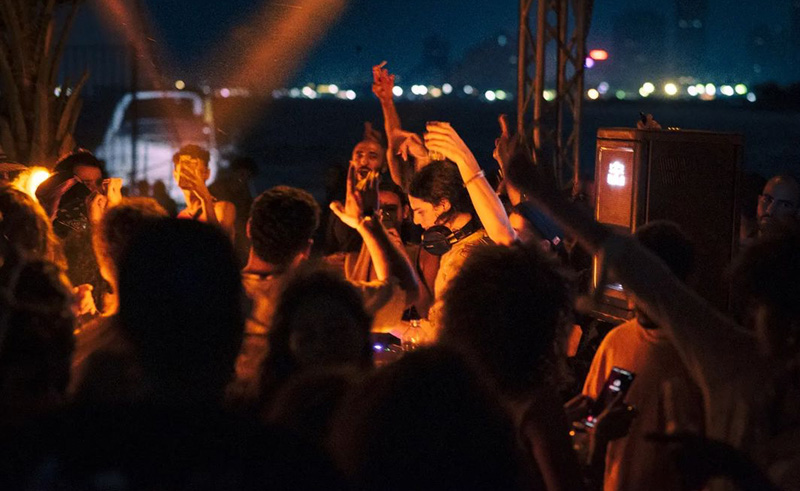 While the label of a safe space is arguably vague, with no clear-cut path to achieving the ultimate inclusive feminist party per se, harm reduction protocols, policies and guidelines have still got a way to go across the region. With clear-cut policies, more than just a statement deeming ‘zero tolerance against any form of harassment’, accountability processes, vocal artists critical of the audiences they’re fostering, partygoers conscious of the value of their presence within a space, brands aware of who they’re endorsing, and venues cautious of their guests’ privacy.
While the label of a safe space is arguably vague, with no clear-cut path to achieving the ultimate inclusive feminist party per se, harm reduction protocols, policies and guidelines have still got a way to go across the region. With clear-cut policies, more than just a statement deeming ‘zero tolerance against any form of harassment’, accountability processes, vocal artists critical of the audiences they’re fostering, partygoers conscious of the value of their presence within a space, brands aware of who they’re endorsing, and venues cautious of their guests’ privacy.
- Previous Article Techstars' Ahmad Sufian Bayram on Entrepreneurship Beyond Borders
- Next Article Egyptian Embassies Around the World



